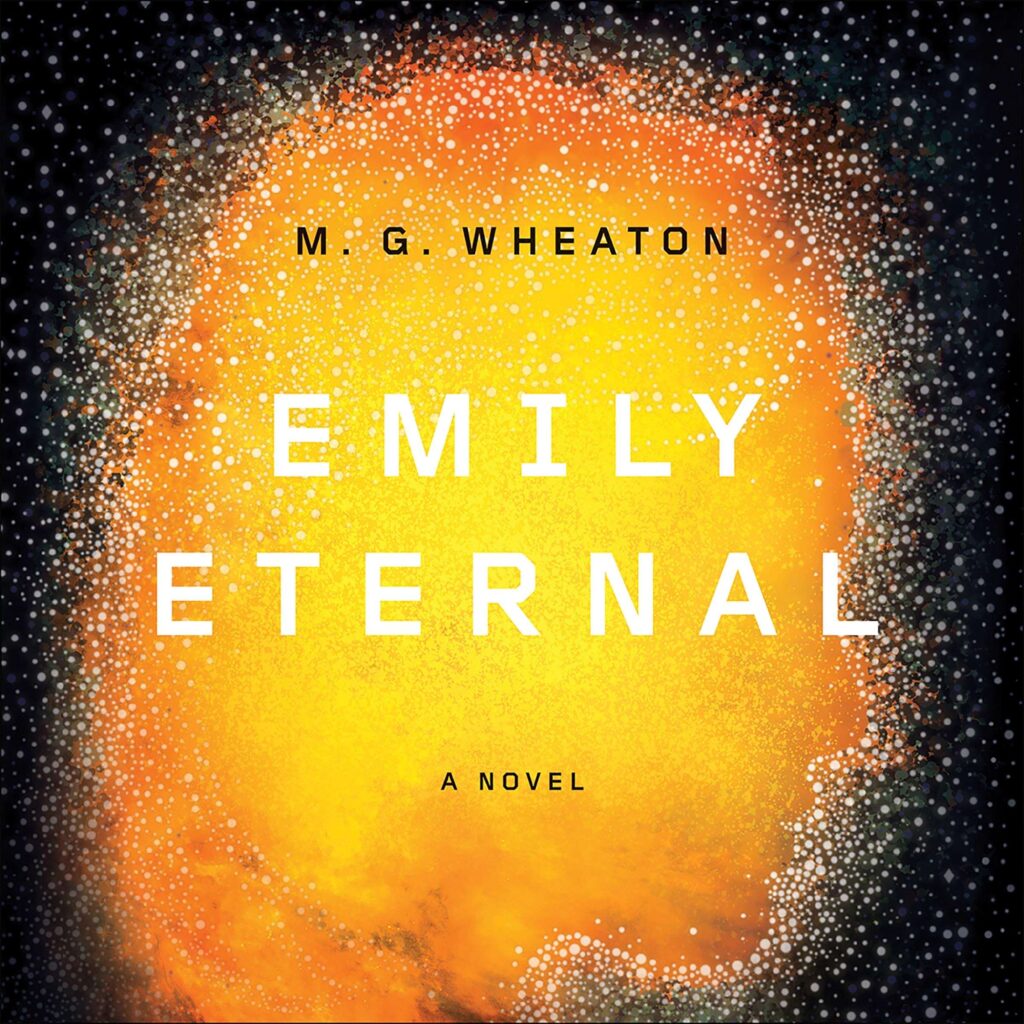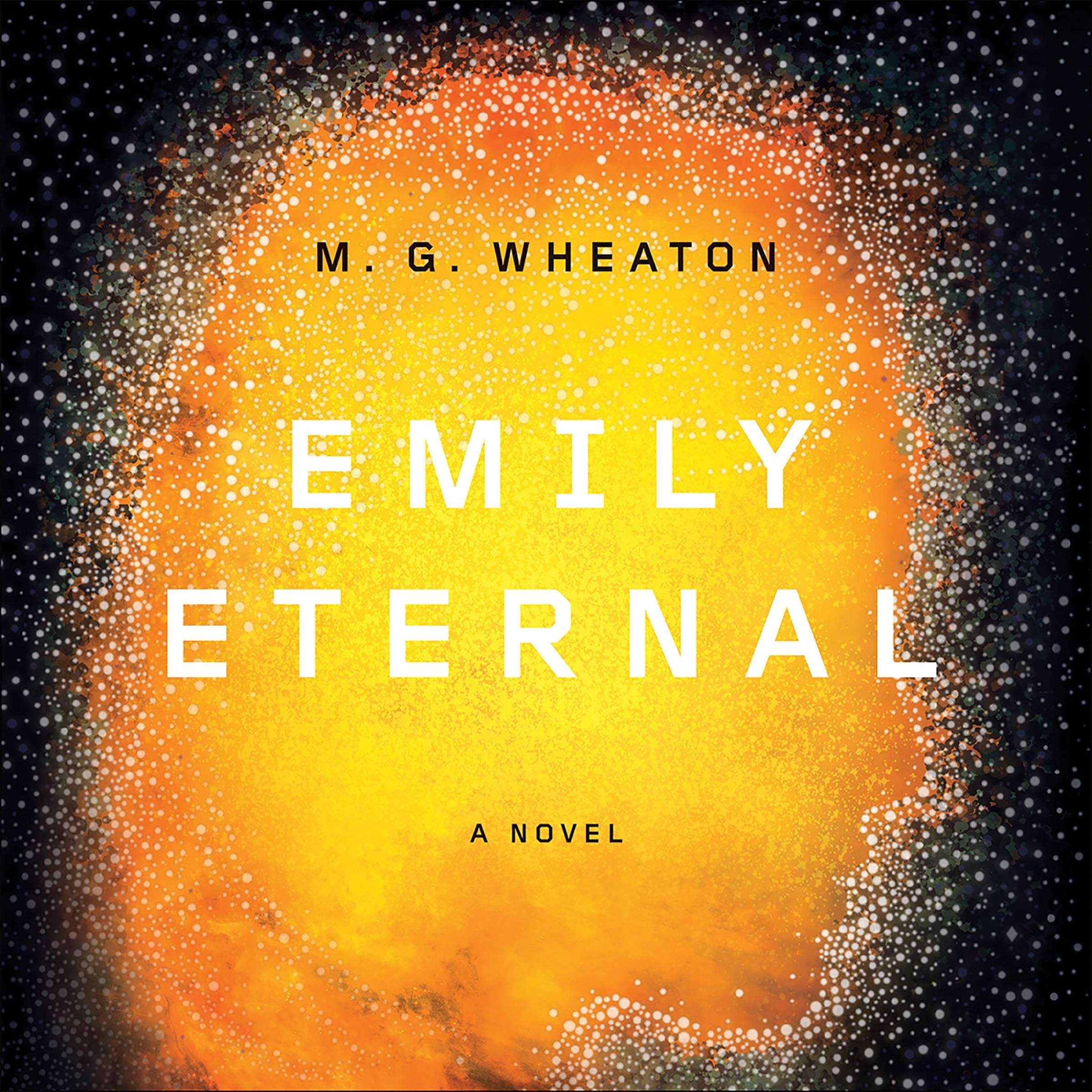Emily Eternal, by M. G. Wheaton

Emily appears to be a typical woman in her early 30s working as a therapist researcher with the iLAB in on the MIT campus – at least for those who can see her. In reality, she is an AC – an Artificial Consciousness – which differs from an AI in that she is empathetic, designed “to interface with and decode human minds”, learning through emotional and environmental response rather than with math-based decision-making. Only those wearing an interface chip can see and interact with her, but in the five years of her existence, she has moved towards not only towards a human appearance, but a human existence, even to the point of “living” her life imitating the stimuli of a human being, while still maintaining the infrastructure of the world’s largest supercomputer.
Then the sun begins to die. What wasn’t supposed to happen for billions of years all of a sudden is looming; the first geomagnetic flares that will disable anything utilizing electricity is only months, potentially weeks away. Humanity is facing true extinction, and there aren’t many options available. Or are there?
Listen, I’ve read a lot of dystopian fiction. A lot of end-of-the-world scenarios with varying degrees of upheaval, introspection and collapse/redemption. And I have to say that I truly enjoyed the focus and treatment of the endgame that is addressed in Emily Eternal.
Since Emily was attempting to define what it meant to be human (from the perspective of an entity with vast amounts of cognitive processes) even before the dire consequences of a dying sun, the questions of how to deal with loss, how to find something of value to hold fast to, if it’s possible to embrace a future that seems quite finite, whether or not to even entertain love, are intriguing, and well handled in H. G. Wheaton’s astute text. Emily’s humanity is awakening even as the human race is facing its end, and that helps us look at who we are and what we are in both a compassionate and a dispassionate stance.
But Emily Eternal is not a novel caught up in navel-gazing. There is a lot of action that takes place, as different scientific and political factions jockey towards what they see as humanity’s slimmest hopes. There is tragic violence and daring escapes and tension borne of plans meant to circumvent massive errors in judgment. As the book progresses and the action ramps up, one truly begins to appreciate the groundwork that Wheaton has built through his main character. This is a coming of age story unlike any other. And despite what it may seem, it’s a story that is shot through with hope – for Emily, and for humanity. I enjoyed it, very much.
—Sharon Browning

